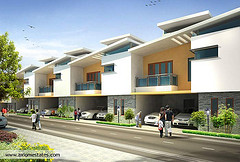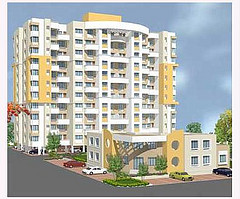The sustainability of India’s real estate sector, particularly in cities like Mumbai, Bengaluru, and Delhi NCR, is a growing cause for concern and scrutiny, especially issues like water scarcity and environmental degradation. Bengaluru’s water crisis is a stark reminder of the consequences of rapid urbanization and ineffective water management practices, prompting a rethinking of development strategies in other major cities.
In Delhi NCR, a major real estate hub, there are concerns about the sustainability of development practices and their potential impact on water resources. However, leading developments are making noteworthy efforts to address these concerns and transition to more sustainable construction and operation models.
One example is DLF, India’s largest publicly traded real estate developer, which has been at the forefront of sustainable construction initiatives. DLF has been able to recycle millions of liters of water per day by implementing zero-discharge water systems and sewage treatment plants, putting less strain on local water sources. Furthermore, DLF’s inclusion in prestigious sustainability indices such as the Dow Jones Sustainability Index demonstrates its commitment to environmentally responsible development.
DLF is a pioneer in sustainable real estate development in India, as evidenced by our notable achievements. DLF, the only Indian real estate company to appear in the Dow Jones Sustainability Index for the past three years, demonstrated its commitment to environmental, social, and governance excellence. DLF’s flagship projects demonstrate its commitment to sustainability. Camellias, India’s first LEED Platinum-certified residential building, establishes the standard for environmentally conscious living. In addition, The Crest is the world’s largest LEED Platinum-certified residential building, demonstrating our commitment to sustainable construction. DLF has also achieved several firsts, including India’s first residential building certified as LEED Platinum by USGBC.
Aakash Ohri, Jt Managing Director & Chief Business Officer, DLF, shared insights, saying, “Sustainability is deeply embedded in our operations.” Our sewage treatment plants recycle over 14 million liters daily, benefiting horticulture, secondary water usage, and lake replenishment while reducing reliance on groundwater. We prioritize greenery preservation by transplanting mature trees, ensuring that Gurgaon’s green landscape remains intact despite infrastructure development. We strive to set the industry standard for sustainability through innovative practices, community engagement, and responsible development, ensuring that our projects not only meet current needs. Our strategy emphasizes energy efficiency and sustainability throughout the design and management processes. DLF continues to lead the way in sustainable real estate, shaping a greener, more resilient future for future generations.
On the other hand, Bharti Real Estate is attempting to create a green supply chain by implementing a sustainable procurement policy and involving suppliers. The company is also adapting recommendations from the Taskforce on Climate-related Financial Disclosures (TCFD) and assessing its Physical and transition climate risks.
“Improving sustainability in the real estate industry is critical. The industry has a significant role in increasing energy efficiency, lowering carbon emissions, and conserving natural resources. At Bahrti Real Estate, we have a set of clear and measurable objectives for our ESG Journey and developed a detailed plan to achieve them. We actively contribute to a greener future through responsible practices and innovative solutions. Our structures are designed and developed using sustainable materials, topsoil conservation techniques, energy efficiency maximization, water conservation techniques, waste management practices, and strict air quality monitoring, thus greatly reducing our environmental impact. As we work to bring our Worldmark portfolio assets online and operational, we plan to generate electricity from renewable sources by installing solar panels on the rooftops of our upcoming assets and entering into Power Purchase Agreements with the country’s leading renewable energy companies. We endeavor to ensure that we adopt green energy practices, minimize carbon emissions, and remain aligned with India’s goal of achieving Net Zero. Ravinder Arora, Director and Chief Operating Officer, Bharti Real Estate
Similarly, Signature Global India Limited has made significant strides toward promoting sustainability in the real estate industry. Signature Global has demonstrated a proactive approach to environmental issues by achieving IGBC Gold Ratings on multiple projects and collaborating with organizations such as the Council on Energy, Environment, and Water (CEEW). The collaboration with CEEW on the ‘Cleaner Air and Better Health’ project exemplifies a concerted effort to reduce air pollution from construction activities, highlighting the company’s commitment to sustainable development.
Lalit Aggarwal, Co-Founder and Vice Chairman of Signature Global (India) Ltd., stated, “Signature Global has always taken a proactive approach to ESG.” Most of our projects are either EDGE-certified or IGBC gold-rated, demonstrating our dedication to the environment. We save approximately 52% of our water usage by implementing various optimum water use practices. These features include low-flow faucets and toilets, rainwater collection systems, and wastewater treatment and reuse facilities. The use of these techniques not only reduces our impact on local water resources but also increases the resilience of urban water systems. Signature Global recognizes the importance of sustainable practices in ensuring the long-term survival of our cities, and we are committed to continuing our efforts to conserve natural resources such as water, the elixir of life.
The initiatives not only conserve water and reduce environmental impact but also highlight the financial benefits of sustainable practices, such as energy efficiency and cost savings for homeowners. Furthermore, the emphasis on worker self-regulation and behavioral changes demonstrates a comprehensive approach to addressing environmental challenges in the construction industry.
While challenges persist, proactive measures taken by developers such as DLF and Signature Global are encouraging steps toward ensuring the long-term viability of India’s real estate sector, particularly in Delhi NCR. Continued collaboration among industry stakeholders, government officials, and environmental experts is critical to advancing these efforts and protecting urban communities’ environmental and social well-being.














